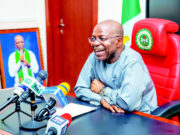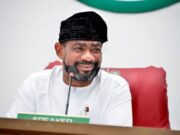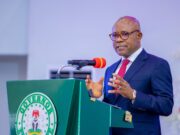 Advertorial
Advertorial
President Bola Tinubu has opposed the National Economic Council’s (NEC) recommendation to withdraw tax reform bills that have sparked significant controversy.
During the 144th NEC meeting led by Vice President Kashim Shettima, the council advised pulling the bills, which have faced strong criticism, particularly from governors of the 19 northern states.

The governors, who convened in Kaduna, expressed their disapproval of the Nigeria Tax Reform Bill, claiming it conflicts with the interests of northern states.
They specifically objected to proposed changes in the distribution of Value Added Tax (VAT).
On September 3, Tinubu submitted four tax reform bills to the National Assembly while on vacation in London.
 Advertorial
Advertorial
These bills include the Nigeria Tax Bill 2024, aimed at establishing a comprehensive fiscal framework; the Tax Administration Bill, designed to clarify legal tax frameworks and minimize disputes; the Nigeria Revenue Service Establishment Bill, which seeks to replace the Federal Inland Revenue Service; and the Joint Revenue Board Establishment Bill, which would create a tax tribunal and ombudsman.
In a statement issued by his media aide, Bayo Onanuga, Tinubu acknowledged the NEC’s recommendation but emphasized the importance of allowing the legislative process to continue.
 Advertorial
Advertorial
He stated, “While I commend the NEC for their advice, I believe that the ongoing legislative process offers a valuable opportunity for input and necessary adjustments without withdrawing the bills.”
Tinubu expressed his openness to further consultations with stakeholders to address concerns about the bills as they progress through the National Assembly.
He noted that public hearings would provide additional avenues for input.
The President highlighted that the tax reform initiatives stem from extensive consultations conducted by the Presidential Committee on Tax and Fiscal Policy Reform, established in August 2023.
 Advertorial
Advertorial
The committee engaged various sectors, including trade associations, professional bodies, and state governors, to inform the proposed reforms.
According to Tinubu, the tax reform bills aim to modernize Nigeria’s tax administration, overhaul existing processes, and align them with global best practices, ultimately enhancing the business environment and economic productivity.

















